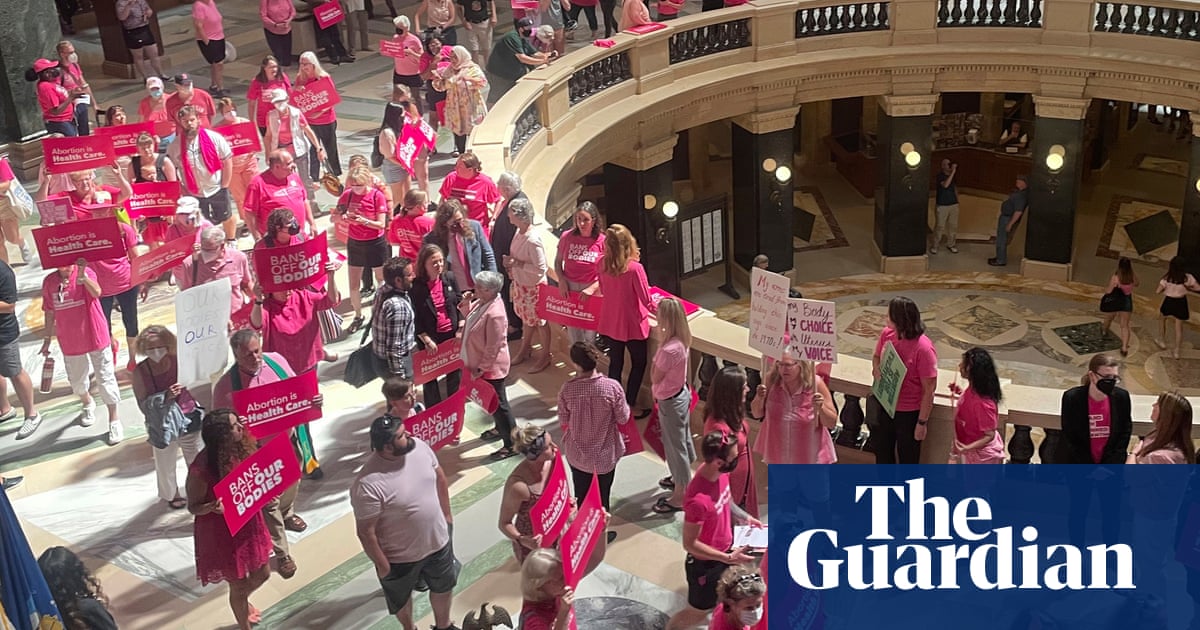TheWisconsinsupreme court’s liberal majority struck down the state’s 176-year-old abortion ban on Wednesday, ruling 4-3 that it was superseded by a newer state law that criminalizes abortions only after a fetus can survive outside the womb.
State lawmakers adopted the ban in 1849, making it a felony when anyone other than the mother “intentionally destroys the life of an unborn child”.
It was in effect until 1973, when the US supreme court’s landmark Roe v Wade decision legalizing abortion nationwide nullified it. Legislators never officially repealed the ban, however, conservatives argued that the US supreme court’s 2022 decision to overturn Roe reactivated it.
Wisconsin attorney general Josh Kaul, a Democrat, filed a lawsuit that year arguing that the ban was trumped by abortion restrictions legislators enacted during the nearly half century that Roe was in effect. Kaul specifically cited a 1985 law that essentially permits abortions until viability. Some babies can survive with medical help after 21 weeks of gestation.
Sheboygan county district attorney Joel Urmanski, a Republican, defended the ban in court, arguing that the 1849 ban could coexist with the newer abortion restrictions, just as different penalties for the same crime coexist.
Dane county circuit judge Diane Schlipper ruled in 2023 that the 1849 ban outlaws feticide – which she defined as the killing of a fetus without the mother’s consent – but not consensual abortions. Abortions have been available in the state since that ruling but the state supreme court decision gives providers and patients more certainty that abortions will remain legal in Wisconsin.
Urmanski asked the state supreme court to overturn Schlipper’s ruling without waiting for a decision from a lower appellate court. It was expected as soon as the justices took the case that they would overturn the ban. Liberals hold a 4-3 majority on the court and one of them, Janet Protasiewicz, openly stated on the campaign trail that she supports abortion rights.
Democratic-backed Susan Crawford defeated conservative Brad Schimel for an open seat on the court in April, ensuring liberals will maintain their 4-3 edge until at least 2028. Crawford has not been sworn in yet and was not part of Wednesday’s ruling. She’ll play a pivotal role, though, in a separate Planned Parenthood of Wisconsin lawsuit challenging the 1849 ban’s constitutionality. The high court decided last year to take that case. It’s still pending.
